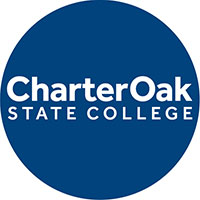
This online program is designed for students interested in or currently pursuing a leadership position.
The program allows students seeking an advanced degree to assess their own personal leadership style, critically examine organizational challenges and analyze the various aspects of organizational interactions at all levels (individual, group and organizational) to gain the professional competencies to effectively lead others and bring about change.
Our Master of Science in Organizational Leadership degree program is 11 total courses (33 credits): 8 Core Courses (24 credits) + 3 Concentration Courses (9 credits).
OEL 501: Driving Organizational Adaptability through Learning Organizations
3 creditsOEL 520: Executive Leadership & Influence in the 21st Century
3 creditsOEL 525: Team Dynamics & Processes in Modern Work Teams
3 creditsOEL 530: Organizational Development
3 creditsOEL 610: Leading Diverse, Multicultural, & Global Organizations
3 creditsOEL 615: Maximizing the Performance of Organizational Talent through Coaching & Mentoring
3 creditsOEL 690: Research Methodologies
3 creditsOEL 695: Capstone Seminar * Earn a "B" or higher to pass this course.
3 creditsCore Total
24 credits
* Not replaceable with transfer credit.
OEL 501: Driving Organizational Adaptability through Learning Organizations
This course will focus on creating and maintaining a learning environment to drive organizational adaptability and sustainability in a highly competitive global environment. This course presents an analysis of the major constructs of a learning organization, motivational theory, organizational culture, diversity, ethics, and leadership styles and behaviors at the individual, group, and organizational levels. This course provides students the opportunity to analyze their organization and culture in the context of a learning organization and create comprehensive recommendations to create or further develop these principles and behaviors. This is the first course to be taken by students enrolled in the Organizational Leadership major.
OEL 501: Course SyllabusOEL 520: Executive Leadership & Influence in the 21st Century
This course will focus on the premise that everyone is capable of being a leader. Students will examine their own leadership style through the use of leadership assessment tools and literature reviews. These will include a number of alternative perspectives of leadership, including contemporary styles. Students will analyze these styles along with information from the assessments, apply them using action learning methods, and develop their own personal model of leadership.
OEL 520: Course SyllabusOEL 525: Team Dynamics & Processes in Modern Work Teams
This course will expose students to the social and psychological effects of group and team dynamics on an organization's ability to stay competitive in a global environment. Students will have an opportunity to explore various concepts associated with the formation of groups (inter-and intra-group relations) and methods for measuring and improving group effectiveness. Emphasis will be placed on theory and practice related to the various types of leadership teams, team cohesiveness, group communication, conflict resolution and other concepts related to group processes and team dynamics.
OEL 525: Course SyllabusOEL 530: Organizational Development
This course will focus on allowing students to gain insights into the history and development of the principles of organizational structure and design. Students will explore the complexities associated with achieving a high performing organization and consider the influence of such factors as organizational goals, life cycle, culture, and environment on organizational design and decision making. This course will place emphasis on the roles of key business disciplines in achieving the organization's mission.
OEL 530: Course SyllabusOEL 610: Leading Diverse, Multicultural, & Global Organizations
This course examines the role of culture, its impact on organizational effectiveness, and the interaction between culture within an organization and the diverse and emerging cultures that prevail in a global economy characterized by rapid demographic change, new technology, and shifting values as companies seek to reach out to more diverse populations of both customers and employees. Students will explore the dimensions of this diversity and examine how it represents both a challenge and an opportunity depending on how effectively it can be integrated into the culture of an organization. The premise of the course is that managing diversity is a source of competitive advantage; that there is a "business case" as well as an ethical case for diversity. Understanding how these cultural differences affect human resource management, marketing, and operations can determine success or failure for anyone working in this global economy.
OEL 610: Course SyllabusOEL 615: Maximizing the Performance of Organizational Talent through Coaching & Mentoring
This course will focus on various leadership styles and their influence on an organization. The course will further examine theory and practice of leadership models and concepts, and build on coaching, mentoring, motivational, and empowerment models required to develop effective leadership skills.
OEL 615: Course SyllabusOEL 690: Research Methodologies *
This course provides research techniques and language for both qualitative and quantitative research methods. This course will include how to develop research questions and hypotheses, how to conduct library/literature searches, research limitations and other research design considerations. The Applied Research Project is a part of the Capstone Seminar course. The research project should be a work-based project focused on a research problem. (Pre-requisite: Undergraduate Statistics)
OEL 690: Course SyllabusOEL 695: Capstone Seminar
This is the capstone course for the M.S. in Organizational Leadership major and should be taken in the student's last semester. This course provides an opportunity for students to complete, present, and receive feedback on their research projects. The projects will be evaluated by peers and faculty. It also provides students an opportunity to reflect upon and integrate their course learning with their life and work experiences and to relate their learning to effectiveness within their organizational work environments.
OEL 695: Course SyllabusThree of the degree program's courses (9 credits) are in a concentration of your choice: Business or Nonprofit.
Business Concentration Courses
OEL 541: Strategy & Creating Economic Value in Organizations
3 creditsOEL 542: Leadership Communications-Strategy & Practice
3 creditsOEL 643: Leading Successful Change in 21st Century Organizations
3 credits
Nonprofit Concentration Courses
OEL 553: Nonprofit Strategic & Operations Management
3 creditsOEL 554: Nonprofit Financial Resource Development & Fundraising
3 creditsOEL 655: Roles of Nonprofits in Fostering Social Change
3 credits
OEL 541: Strategy & Creating Economic Value in Organizations
This course will focus on introducing students to the key principles of creating economic value in an organization. Students will learn how to use various strategic, economic, and financial tools to analyze the current competitive condition of an organization and create an organizational business strategy to promote business sustainability and resilience.
OEL 541: Course SyllabusOEL 542: Leadership Communications-Strategy & Practice
This course presents communication as integral to management strategy and as a critical component for success in the workplace. In this class, you will develop a foundation for designing effective messages, both written and oral, from concept to delivery. You will use a strategic communication model to identify objectives, analyze audiences, choose information, and create the most effective arrangement and channel for that message. Particularly, the course emphasizes elements of persuasive communication: how to design messages for diverse and possibly resistant audiences and how to present that information in a credible and convincing way.
OEL 542: Course SyllabusOEL 643: Leading Successful Change in 21st Century Organizations
This course will provide a conceptual frame of organizational change theories, concepts and models. Students will have an opportunity to practice implementing organizational change processes; and to examine critical leadership competencies necessary to lead a strategic change initiative. This course will also allow students to gain a broad understanding of issues associated with implementing a change process at the individual, group, and organizational levels. Students will critically examine different types of change –incremental, transitional, transformative, and strategic - and the various implementations in performing systems change.
OEL 643: Course SyllabusOEL 553: Nonprofit Strategic & Operations Management
This course is designed to allow students to gain competencies necessary to manage a nonprofit organization. This course focuses on current issues, theoretical perspectives, federal and state regulations and reporting requirements, policies, and methods in the development and management of a nonprofit organization. The course places additional emphasis on strategic planning, marketing, identifying financial resources (grants, fundraising, etc.), management of finances (making operational and capital budgeting decisions) and human resources--that include volunteers, information technology, and the skills necessary for effective organizational leadership.
OEL 553: Course SyllabusOEL 554: Nonprofit Financial Resource Development & Fundraising
This course focuses on the history, theories, skills, and practices of fundraising, including how fundraising emanates from the organizations' strategic plan; how marketing has an impact on fundraising; the components of a successful fundraising campaign; fundraising ethics and legal issues; and the basic techniques of fundraising such as annual giving, grant writing, special events, and capital campaigns.
OEL 554: Course SyllabusOEL 655: Roles of Nonprofits in Fostering Social Change
This course focuses on the impact of nonprofit organization in fostering social change and the roles of the director and board in bringing about social change. The course will challenge students to consider the shift from a program centric model to a mission centric approach that is focused on social impact, outcomes, and measures of success. Students will also gain an understanding of the roles and influences (positive and negative) of philanthropy on political advocacy and social change movements in the U.S.; the scope and diversity of the philanthropic sector; political advocacy approaches and social movements; and example of current philanthropic involvement in advocacy and social change efforts across the political spectrum, It will examine nonprofits organizations that have succeeded and those that have failed in implementing social change.
OEL 655: Course Syllabus- A bachelor's degree from a regionally accredited institution, or international institution equivalent to a U.S. regionally accredited institution, with a grade point average of 3.0 or better.
- Students with GPA's between 2.7 and 3.0 may apply. If accepted, grades of B or better must be achieved in the first two courses to continue the program.
- One essay, 500-750 words, describing the applicant's specific career goals, objectives, motivation to pursue an advanced degree, and professional experience and/or projects.
- A professional resume
- No GREs or entrance exams required
- The OEL501 Learning Community must be taken in the student's first term.
- The OEL501 Learning Community, OEL690 Applied Research, and OEL695 Capstone seminar courses will not be accepted in transfer and can only be taken at Charter Oak.
- Program Prerequisite: A prior undergraduate course in Statistics. Students without this will be required to take a non-credit, online, low-cost review seminar (approximately 12 hours to complete).
To be eligible for graduation, students must meet the following College requirements:
- Earn at least 33 hours for a master's degree.
- Have a cumulative grade point average of at least 3.0.
- Fulfill all course requirements of the major and:
- Complete all the Core and Major courses with a grade of B- or higher.
- Complete the Capstone Seminar with a grade of B or higher.
- Submit a graduation application by the appropriate deadline, including the graduation fee.
- Graduate students have five years to complete a Charter Oak State College graduate degree.

Lorinda Lewis

Kimberly James

Michael McGivern

Michelle Stronz
Outcomes & Pathways
Students who graduate with a Master of Science in Organizational Leadership will be able to:
- Assess and design learning communities in organizations.
- Evaluate and formulate an individual leadership style.
- Develop professional communication skills.
- Recommend how one develops effective groups.
- Construct organizational leadership strategies.
- Explain the complexities of organizational design and the interconnection between organizational structures.
- Design and implement organizational change processes.
- Create strategies to support intercultural/global inter-relationships.
- Develop strategies that support the advancement of organization’s vision and mission.
- Apply various nonprofit fundraising principles and practices to accomplish the organization’s financial goals.
- Formulate change strategies that supports a continual changing landscape for nonprofit organizations.
- Apply financial and economic tools to improve organizational performance.
- Conduct research utilizing online sources and databases and write research papers that analyze and synthesize information and data gathered.
- Formulate, propose, and develop a plan utilizing appropriate tools and interventions to implement solutions designed to improve organizational efficiency and effectiveness.
Skills You Can Put to Work
Graduates of the Master of Science in Organizational Leadership will learn to:
- Lead, formulate and implement organizational change strategies to achieve the organization's mission.
- Create and lead local, national, and international self-directed, cross functional, and virtual work teams.
- Identify and implement continuous improvement strategies to improve organizational efficiency and effectiveness.
- Lead, motivate, coach, mentor, and develop associates and groups to achieve measurable results.
- Utilize applied research to analyze and solve complex organizational problems.
Save Time & Money with Transfer Credit and/or Credit for Prior Learning
Applicants may transfer in up to 6 graduate-level credits from other regionally accredited institutions if the credits are equivalent to the content offered in one of the required courses of the program. Transfer credits must be no more than 10 years old and the student must have earned a “B” or better.
Students may also be able to earn up to 6 credits through an assessment of their prior learning and evaluation of credentials earned.
See information about your Financial Aid options.

Charter Oak State College is an Educational Member of the International Accreditation Council for Business Education (IACBE), and has affirmed its commitment to excellence in business education.
Why Charter Oak State College for Your Graduate Degree?
- 100% Online
- Affordable
- Expert Faculty
- GRE/entrance exams not required
